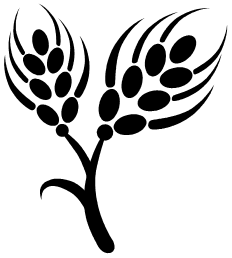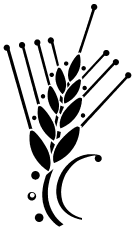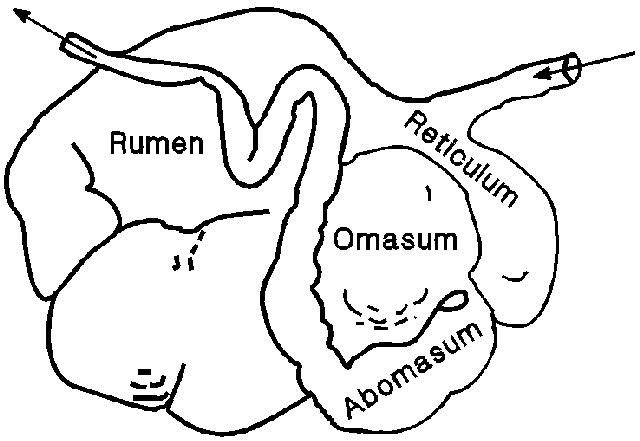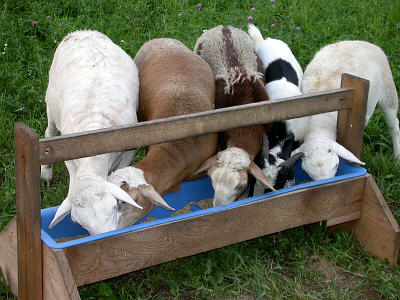Ovis aries: More about Mary's Little Lamb
Hungry, Hungry Hippos? Or Hungry, Hungry Sheep?



Sheep are herbaceous animals, meaning they feed only on plants. Herbivores compared to omnivores and carnivores tend to have longer digestive tracts because it takes more effort to extract the necessary amount of nutrients from plants as it is does from meat. Also, since plants are less nutritionally valuable, herbivores need to eat for longer periods of time to gain the same amount of nutrition as a carnivore or omnivore.
To
accommodate for the digestion of plants, sheep have a complex,
four chambered stomach. The chambers include the rumen,
reticulum, omasum, and abomasum. A t first, sheep soften
plant food within the rumen. After softening the food, sheep
regurgitate it and chew it some more for further decomposition.
Inside their stomachs, many microbes and bacteria can be found that further
aid in the digestion of their food. Sounds delicious right?
Animals that rechew ingested food are called ruminants.
Other ruminants include
cows,
goats, and buffalos. Sheep usually eat a lot of food in a
short amount of time, rest for awhile, and then rechew their
ingested matter. On average, sheep spend six to seven hours per
day ruminating their food.
t first, sheep soften
plant food within the rumen. After softening the food, sheep
regurgitate it and chew it some more for further decomposition.
Inside their stomachs, many microbes and bacteria can be found that further
aid in the digestion of their food. Sounds delicious right?
Animals that rechew ingested food are called ruminants.
Other ruminants include
cows,
goats, and buffalos. Sheep usually eat a lot of food in a
short amount of time, rest for awhile, and then rechew their
ingested matter. On average, sheep spend six to seven hours per
day ruminating their food.
Sheep are by no means picky about what kinds of plants they eat either. As long as they are getting their daily dosage of sugar in the form of either cellulose or starch and a little bit of protein from something like hay, sheep are happy campers. More often than not, sheep primarily eat the grasses that they graze in. Shepherds may also feed them corn, wheat, barley, and oats. Similar to how we might take vitamins every morning, shepherds may offer vitamins and minerals such as Vitamins A and E, calcium, phosphorus, and sodium to their sheep.
As far as water goes, many sheep can go without water for long periods of time. Merino sheep have been observed to go up to ten days without water! How's that compared to your eight glasses per day?
Previous
Click here to learn
how domestic sheep are different than wild sheep
Baaaack Home
